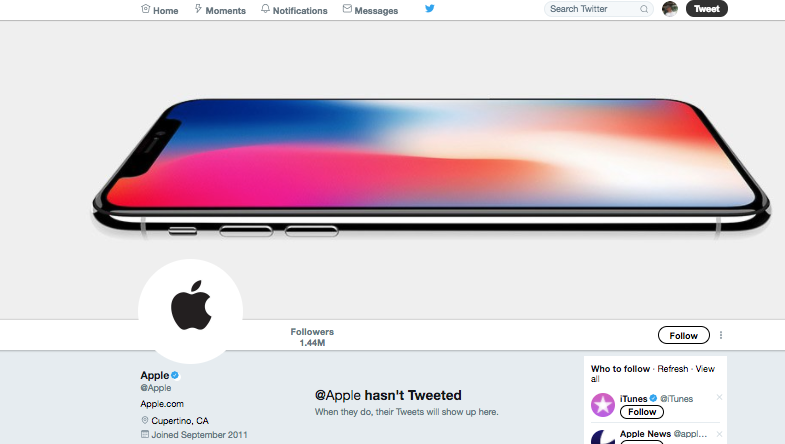You have /5 articles left.
Sign up for a free account or log in.
The conventional wisdom is that we all need a professional digital presence.
This is a conventional wisdom in which I believe.
But what if we are wrong?
None of us are as successful as Apple. And what is Apple doing in social media. Nothing. At least not a thing on Twitter.
Apple has 1.44 million followers, and HAS NEVER TWEETED.

Since Apple is not on social media, we tend to pay attention whenever they do make an announcement. An Apple event is always newsworthy, as Apple creates so little news between each event.
Is it possible that many of us in academia -and particularly those of us in digital learning - are overexposed on social media?
You can hear from us all the time on various online platforms. We are blogging, tweeting, status updating, posting, and generally digitally interacting. We are so digitally present that it is impossible to tell when we say something that might actually be worthwhile.
The digital ubiquity that social media provides might come at a high cost. The lack of filters and gatekeepers in social media mean that all of our ideas, no matter how half-baked, get (digitally) published. We can say lots of things in blog posts and tweets, but how much of what we say is actually worth hearing?
The counter-argument is that posting something on social media is not the same as impact. Good ideas will find an audience, as social media is about sharing. If you like this blog post you will tweet a response, or write your own rejoinder on your blog.
Maybe. But I wonder if a strategy of saying less might increase the value of whatever is said.
We value what is scarce. Newspapers made the mistake of giving away their content free online, and look where that strategy got them. We should at least be asking about what we as professionals, and what the institutions in which we work, might be losing by our pursuit of social media presence.
Perhaps we can debate this question on social media.
Are you following an Apple-like strategy of avoiding blogging, tweeting, commenting, and posting?








